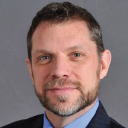The Sustainable Development Goals (SDGs) made a helpful appearance during the first day of the Council on Foundations’ 2016 conference in Washington, DC today. Helpful and somewhat unusual for this annual gathering of mostly U.S. based foundations and non-profits: Rather than focus on the SDGs as they are being implemented in the developing world, this session focused on the SDGs and their application in the U.S. Unlike the Millennium Development Goals, the SDGs involve some 190 nations around the world, including wealthy and ‘developed’ ones like the U.S.F.
Natalie Ross, Member Relations Director, Global, at the Council on Foundations, skillfully led the large panel of five presenters. Natalie noted that the Council has adopted the SDGs as a programmatic focus, supporting members working both in the U.S. and globally to understand, appreciate, and participate in the SDGs. A key partner in this work, Natalie noted, is the SDG Philanthropy Platform.
Mike Beard from the U.N Foundation presented first, stating that the development of the SDGs has been the most broad-based global consultative process ever in history. Mike stressed the universal aspect of the SDGs and the recognition among their framers that we will not be able to tackle any of today’s major problems without acknowledging their interrelatedness: poverty with gender, gender with health, health with transport, and so on. Mike noted that the SDGs allow U.S. citizens to better understand how challenges at home, and often the solutions to them, are linked to the global.
The conversation then turned to how a global corporation is using the SDGs to engage their employees. Medtronic Foundation, based in Ireland and the U.S., has a remarkably robust employee engagement program involving volunteering and charitable giving. Medtronic’s Jennifer Chavez Rubio noted how the company has begun tracking the charitable activities of employees against the SDGs and that employees have responded very well to this, allowing them to understand and be inspired by the fact that they are involved in an ambitious and globally critical endeavor. Jennifer also touched on Impact 2030, a private sector-led coalition aimed at getting corporate employees to contribute to the SDGs. To date, 60 partners have joined the coalition, with a goal of reaching 250 later this year.
The discussion then turned to two examples of how the SDGs are being used at the local level in the U.S. Nancy Van Milligan of the Community Foundation of Greater Dubuque described a process her organization has helped facilitate to tackle poverty and economic insecurity at the intersection of race and equity—something quite new for Dubuque, until recent times a predominantly white community. Nancy noted that the SDGs helped give these efforts greater legitimacy, allowing people to see themselves as committed to a greater purpose.
Through the Sustainable Development Solutions Network, Baltimore, Maryland has been selected as one of two cities, along with San Jose, California, to pilot how the SDGs can be implemented in the U.S. Gerrit Knapp of the University of Maryland noted that there was a great deal of push-back when this program first came to Baltimore: the city and its many institutions were already involved in a large number of anti-poverty, educational, and other activities: Why bother with the SDGs? Gerrit described a process by which he and colleagues began mapping these initiatives, something that helped people better understand how the SDGs could be of value to them, especially with regard to outcome measurements and the power of collective, cooperative organizing around a common purpose.
David Beckman of Bread for the World rounded out the panel, sharing how the SDGs (and the MDGs before them) have been especially resonant within faith-based communities. Mike also described how President Obama has ramped up his promotion of the SDGs, a process which Mike believes will result in deeper commitment on the part of several key U.S. federal agencies to deploying the SDGs.
Overall, this session offered a helpful take on the value of the SDGs within a U.S. context, suggesting that they offer both practical advantages as well as philosophical ones for foundations working to address America’s many 21st century challenges.
John Harvey is an independent global philanthropy professional.
For more discussion on the SDG debate, listen to our Alliance Audio podcast.






Comments (1)